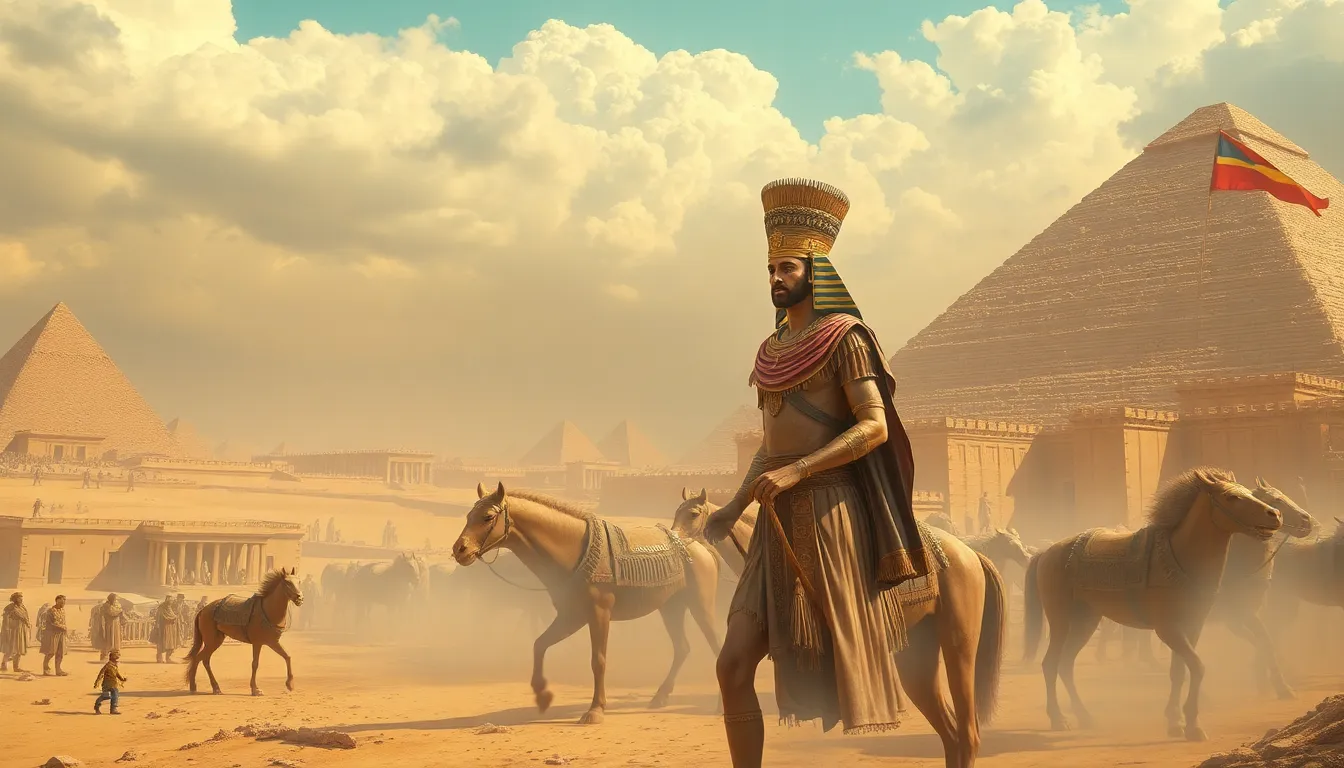The Myths of Pharaoh Thutmose III’s Military Campaigns
I. Introduction
Thutmose III, often hailed as one of the greatest pharaohs of ancient Egypt, ruled from 1479 to 1425 BCE. His military campaigns are celebrated for their remarkable achievements and the vast expansion of Egyptian territory. However, these campaigns have also been shrouded in myths that oversimplify the complexities of his leadership and military strategy. This article aims to debunk some of the most common myths surrounding Thutmose III’s military endeavors, providing a more nuanced perspective on his reign.
II. Historical Context of Thutmose III’s Reign
To understand the military campaigns of Thutmose III, it is essential to consider the historical context of his reign:
- Timeline of Rule: Thutmose III ascended to the throne around 1479 BCE and ruled until 1425 BCE.
- Political Landscape: Before his reign, Egypt had experienced a period of instability, particularly during the reign of his stepmother, Hatshepsut, who initially sidelined him.
- Ascension to Power: Thutmose III became pharaoh after Hatshepsut’s death and faced immediate military challenges, including potential rebellions in Nubia and the Levant.
III. Myth 1: Thutmose III Was an Unchallenged Military Genius
Thutmose III is often portrayed as an invincible military leader who achieved victory after victory with ease. However, this characterization overlooks several important factors:
- Role of Luck: Many of Thutmose III’s victories can be attributed to favorable circumstances, such as advantageous terrain and the weaknesses of his opponents.
- Contemporaneous Leaders: Comparisons with other military leaders of the time reveal that Thutmose III was not the only capable commander. Leaders in neighboring regions also employed effective strategies that challenged his supremacy.
IV. Myth 2: Thutmose III’s Campaigns Were Solely Expansionist
Another common myth is that Thutmose III’s military campaigns were solely focused on territorial expansion. In reality, his motives were multifaceted:
- Defense and Stability: Many campaigns were launched in response to threats, aiming to secure Egypt’s borders rather than simply expanding its territory.
- Diplomacy and Trade: Thutmose III understood the importance of diplomacy, often negotiating treaties and establishing trade routes that benefited Egypt economically.
Specific campaigns, such as those against the Mitanni and the Battle of Megiddo, illustrate this blend of military action and diplomatic strategy.
V. Myth 3: Thutmose III Never Suffered Defeats
The notion that Thutmose III was invincible is further complicated by historical evidence of military setbacks:
- Lesser-Known Setbacks: While he won many battles, there were instances where his forces faced defeats or were unable to achieve their objectives.
- Impact on Strategy: These defeats prompted Thutmose III to adapt his military strategies, often learning from his mistakes to ensure future victories.
In ancient warfare, the concept of “victory” was complex and often involved more than just battlefield success. Strategic withdrawals or temporary setbacks could be seen as part of a larger plan.
VI. Myth 4: The Legacy of Thutmose III’s Campaigns Was Universally Positive
Thutmose III’s military campaigns are often viewed solely as triumphs; however, the legacy of these actions was not without consequences:
- Repercussions for Conquered Territories: The lands he conquered often faced harsh treatment, which led to resentment and rebellion in the long term.
- Contemporary Perspectives: Some historical sources from neighboring regions depict Thutmose III in a less favorable light, highlighting the suffering caused by his campaigns.
These perspectives complicate the narrative of his legacy, emphasizing that military expansion can have negative repercussions for both the conqueror and the conquered.
VII. Reevaluating Thutmose III’s Military Legacy
In light of these myths, it is essential to reevaluate Thutmose III’s military legacy:
- Archaeological Findings: Recent discoveries and inscriptions have provided deeper insights into his campaigns and the realities faced by his armies.
- Modern Interpretations: Scholars continue to debate the significance of Thutmose III’s reign, often contrasting ancient interpretations with contemporary analyses.
Thutmose III remains a pivotal figure in Egyptian history, representing the complexities of leadership and the multifaceted nature of military campaigns.
VIII. Conclusion
This exploration of the myths surrounding Thutmose III’s military campaigns reveals a more intricate picture of his reign. From the portrayal of him as an unchallenged military genius to the assumption that his campaigns were solely expansionist, many narratives oversimplify his legacy.
Understanding the complexities of historical figures like Thutmose III allows for a richer appreciation of ancient history and its lessons. Continued research and critical analysis are necessary to unravel the truths behind the legends of the past.




